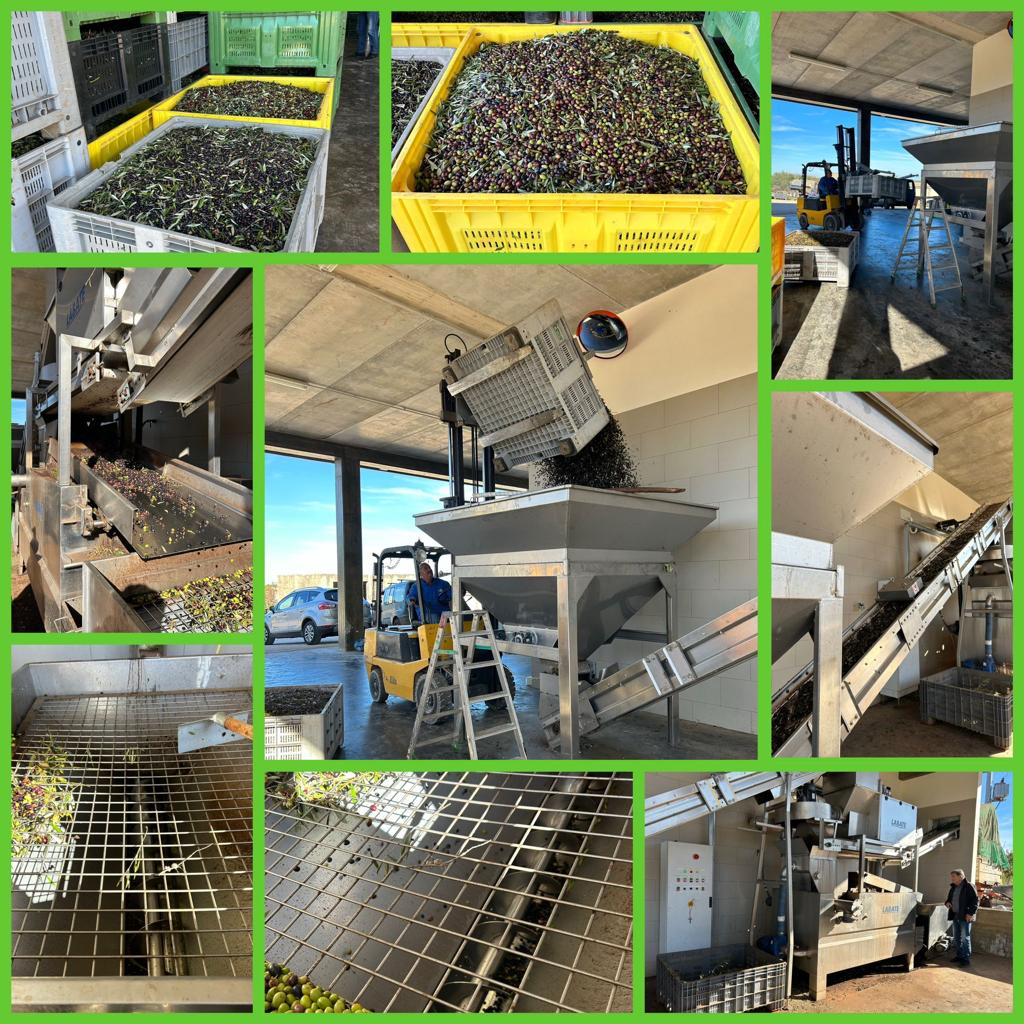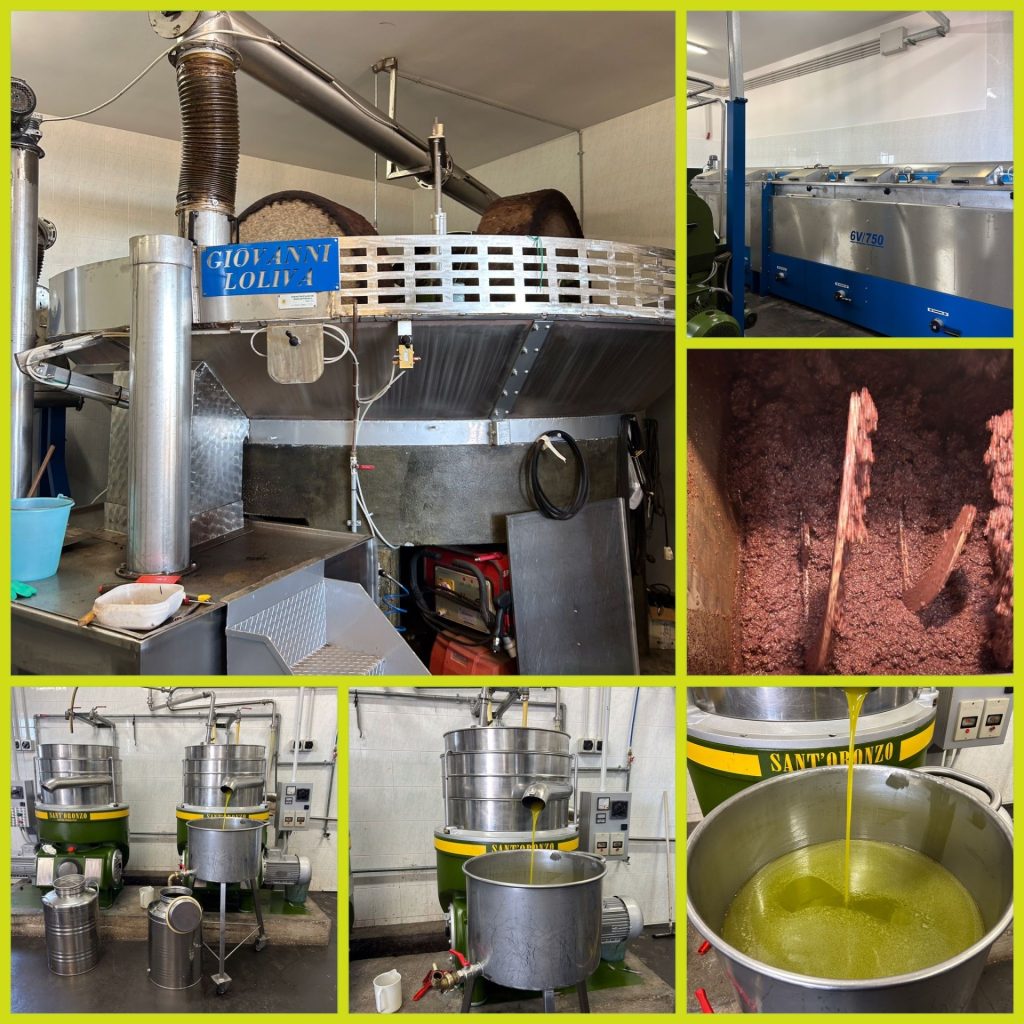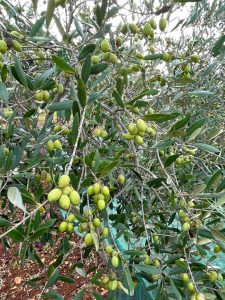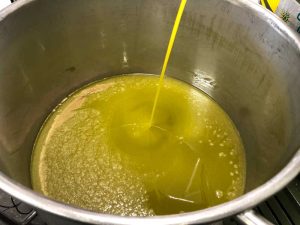High quality olive oil
from our home to yours
Cold pressed for Superior Quality
Within 24 hours of harvesting we take our olives to our local mill where they are cleaned, ground and crushed at low temperatures to extract the precious oil. There is nothing quite like the taste and fragrance of our extra virgin olive oil.
It is also cold pressed, which means that the temperature of pressing is maintained at below 35 degrees centigrade. This is one of the requirements for extra virgin olive oil to be deserving of that title.
To appreciate what makes extra virgin olive oil so special, is to understand the care and purity of the extra virgin olive oil preparation process which differs from any other.
If the oil you’re buying is not labelled as “extra virgin olive oil” it may be cold pressed, which is good, but it is then refined which can reduce acidity and improve the taste, but which happens through various techniques, some of which involve chemical additives. Bleaching and deodorising can also be involved in the refining process.
The process of bleaching and employing other refinement techniques simply removes the natural pigments which can include chlorophyll and carotenoids. However, the components being removed can have a bunch of benefits of their own as it reduces the nutrients found in the oil and that’s why you should opt for unbleached and unrefined as often as possible.

The Processing of our olive oil
Firstly, our olives are washed to remove dirt, leaves, twigs and insects to make sure our final product is at its best and has the freshest taste possible.
Our local mill is just 2 kms from our beloved olive grove. Only extra virgin olive oil is processed at this mill. Having these locations so close by helps decrease the carbon footprint.
Our olives are pressed using granite wheels. The olives and their pits quickly turn into a paste. The temperature of this process is closely monitored to ensure it is strictly cold pressed (hyperlink to section above).
After the olive paste is ground, it’s time for malaxation. This is where water is slowly introduced into the paste. Why would you want to add water? Well, water repels oil. When the droplets are added in slowly, they push the oil molecules together. This way the tiny drops of oil begin clumping together. Later, they are much easier to extract.
Malaxation is a fancy word for a very simple process. Malaxation requires constant stirring and monitoring the temperature. Different producers have a different opinion on how long this process should take. The stirring time is anywhere between 20 to 40 minutes. There is a ‘sweet spot’ and it depends on the sort of olive being processed, as well as other variables which an expert becomes familiar with. The longer the olive paste is malaxated, the more the oil production is increased as well as improving the flavour. The longer the oil spends with the olives, the more flavour it can pick up. But neither can the process be too long. When the olive paste is stirred around, it will inevitably come into contact with the air which increases oxidation and free radical levels.
Modern pressing systems are built to not allow air inside as the closed mixing chambers are designed to keep oxygen out and a non-oxidizing gas mixture is added. The centrifuge extracts the oil, rotating on an axis so that when the olive paste spins on it the oil separates out.
Ultimately, our cold pressed olive oil is the best kind you can buy. You are getting all the benefits and none of the potentially harmful free radicals produced by secondary and tertiary presses of olive oil. We do it once and straight into our cans and bottles. From our home to yours.

Latest News
Our new olive oil
November 2023 was a bumper year for us. The olives just kept coming and coming. We are now selling the oil so if you are interested then please leave a message on instagram or on email info@casaamorosa.co.uk We are selling directly in the UK £20 for 750 ml; £15 for

Simona Olive Variety
This variety is present in the areas of Murgia dei Trulli and Grotte, in particular in the municipalities of Castellana, Conversano , Putignano and Alberobello, Polignano and Monopoli. The Simona variety is known for its sensorial, slightly spicy tone of the oil which means that it has traditionally been destined

Using our olive oil
There are so many ways to use our olive oil. It can accentuate the food that you eat, without covering it up. It is ideal in salads, in soups, pasta, beans, all types of vegetables but particularly asparagus, artichokes, peppers (as a contrast to the sweet tones) but also all